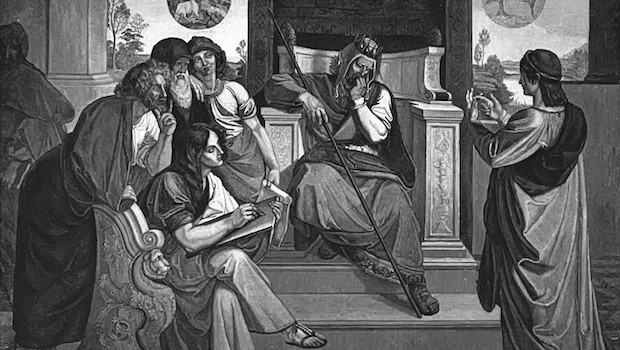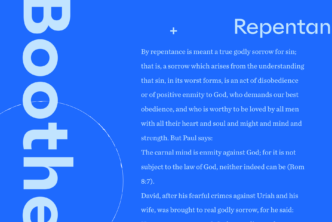By Wendy Widder
Dreams dominate the story of Joseph, but their importance in the narrative derives from the significance of dreams in the culture and theology of the ancient Near East. While many of us dismiss dreams as a mental reworking of the day’s events or as the result of indigestion, ancients considered dreams to have potential revelatory significance. Dreams were one way the gods communicated from the divine realm to the human realm—a belief that is clearly evident in the Joseph narrative.
Six dreams, conveyed in three pairs, propel the story of Joseph [and his] rise from being the favored—and thus despised—son of Jacob to being the “discerning and wise” man appointed to manage Egypt during its 14 years of feast and famine (Gen 41:33). Joseph has two dreams (Gen 37), two of his fellow prisoners in Egypt each have a dream (Gen 40), and Pharaoh has a pair of dreams (Gen 41). The first pair sets the narrative in motion and points ahead to its destination, while the second and third pairs are catalysts for Joseph’s ascension.
In the Bible and in the ancient Near East, some dreams gave clear messages for the recipient (see, for example, Solomon in 1 Kgs 3:5–15). Other dreams were symbolic—that is, they contained imagery that needed to be interpreted. Sometimes the significance of such imagery was obvious, but at other times it required expert assistance from a diviner—one trained in the art of interpreting messages from the gods.
All six dreams in the story of Joseph are symbolic, two of them containing obvious imagery and four requiring an interpreter. Joseph serves as the interpreter, but he was not a trained diviner. Rather, he insisted the interpretations came from God.
Joseph’s dreams
The first pair of dreams in the story of Joseph are his, and they signal where the narrative is headed. In the first dream, Joseph sees himself and his brothers binding sheaves in the field. His brothers’ sheaves circle around his own and bow low to the ground. In his second dream, Joseph sees the sun, moon, and 11 stars bowing down to him.
While these dreams are symbolic, they did not require expert interpretation. Their meaning is clear, and it incites Joseph’s brothers to hate him even more and prompts his father to rebuke him (Gen 37:8, 10).
The meaning of the dreams infuriated Joseph’s brothers. It’s likely they also were disturbed because Joseph had two dreams with the same meaning. They would have understood the second dream to authenticate the meaning of the first.
The chapters that follow (Gen 39–41) tell how these big dreams came to be fulfilled. By God’s providence and through the medium of revelatory dreams, Joseph rises to a place that requires even his family to bow before him.
The prisoners’ dreams
The second pair of dreams occurs during one of the low points in the Joseph story—his wrongful imprisonment for refusing the advances of Potiphar’s wife (Gen 39). One morning Joseph discovers that two of his fellow prisoners, the king’s cupbearer and baker, had dreams overnight. They are troubled because they don’t understand the dreams and no interpreter was available. Joseph assures them that “interpretations belong to God” (Gen 40:8) and asks to hear the men’s dreams.
The cupbearer goes first, recounting his dream of a vine with three branches that budded, blossomed, and ripened. He took the grapes, squeezed them into Pharaoh’s cup, and presented the cup to the king. Joseph tells the cupbearer that in three days he will be restored to his position of service before the king. To this interpretation, Joseph adds a request: that the cupbearer bring Joseph’s case before Pharaoh and secure his release from prison.
Encouraged by the positive interpretation of the cupbearer’s dream, the baker recounts his dream to Joseph. He saw three baskets of bread on his head, the top one full of baked goods for the king. But birds picked the food out of the top basket and ate it. Joseph tells the baker that in three days, he will lose his head and be impaled on a pole, where the birds will eat his flesh.
Three days later, Joseph’s interpretations come to pass, but in another low point of the narrative, the cupbearer forgets about Joseph when he returns to Pharaoh’s service. However, God will eventually use Joseph’s interpretations of the prisoners’ dreams to bring about his release.
Pharaoh’s dreams
The third pair of dreams in the Joseph narrative occurs two years after the cupbearer returned to the palace. Pharaoh has a pair of symbolic dreams that trouble him. He sends for his experts to tell him the meaning of the dreams, but they cannot. The cupbearer suddenly remembers Joseph and tells Pharaoh of the “young Hebrew” who had accurately interpreted the dreams of the cupbearer and the baker. Pharaoh sends for Joseph. When the king says he heard that Joseph could interpret dreams, Joseph denies it but assures Pharaoh that God will answer.
Pharaoh recounts his two dreams. In the first, he saw seven fat cows grazing along the Nile. Then seven skinny cows emerged and devoured them. Despite their feast, the seven skinny cows were “as ugly as at the beginning” (Gen 41:21). In the second dream, seven full heads of grain grew on a single stalk. Then seven scorched and withered heads of grains came up and consumed the full heads.
Joseph tells Pharaoh that the two dreams are one, given twice because “the matter is established by God, and God will do it quickly” (Gen 41:32). The seven fat cows and the seven full heads of grain represent seven years of unprecedented plenty in Egypt. The seven skinny cows and the seven scorched heads of grain represent seven years of ravaging famine.
Dreams fulfilled
Joseph follows his interpretation with some advice for the king: appoint a wise and discerning man to manage Egypt so that it will not be ruined by the coming crisis. Pharaoh takes Joseph’s advice and elevates him to second-in-command over the land—a position that eventually requires Joseph’s own family to bow their faces to the ground in his presence, a fulfillment of his dreams years earlier (Gen 42:6).
[The] three pairs of dreams in the story of Joseph moves [the narrative] from prophecy to fulfillment. More importantly, through the fulfillment of these dreams, God brings the family of Jacob—descendants of Abraham—to Egypt, where he faithfully preserves them and fulfills his promise to make Abraham into a great nation.***
This post is adapted from the original article in the July/August edition of Bible Study Magazine.
Scripture quotations are from the Lexham English Bible.
Wendy Widder has a PhD in classical and Near Eastern studies. She lives in Minnesota in the Twin Cities, where she does freelance writing and editing and teaches Old Testament courses as an adjunct professor.





